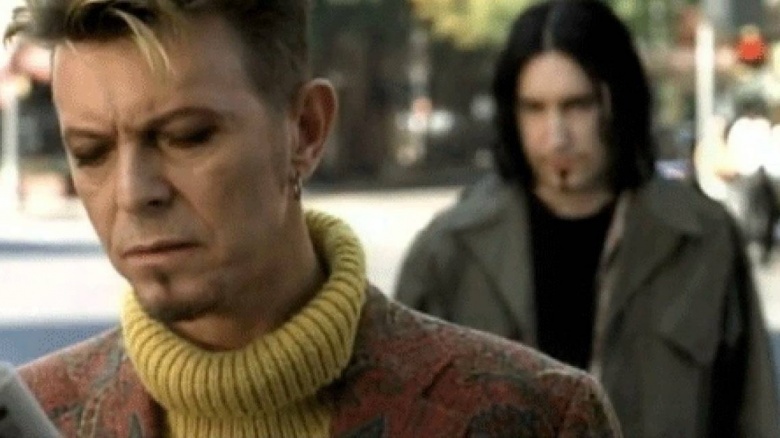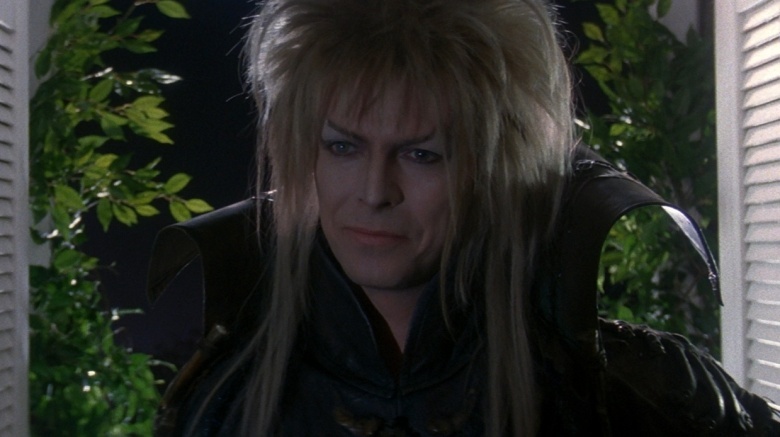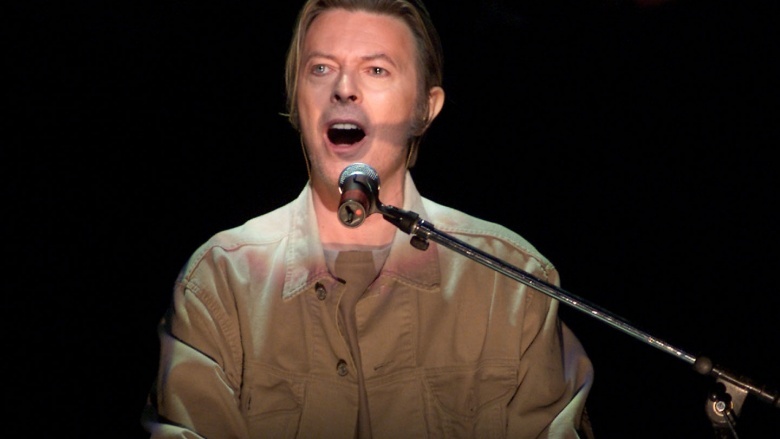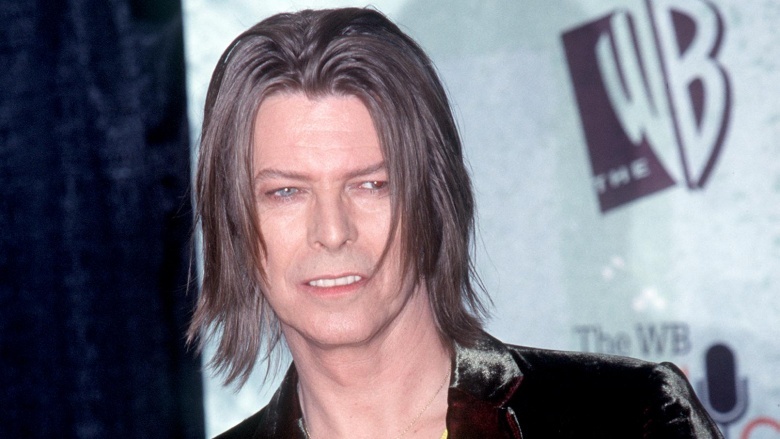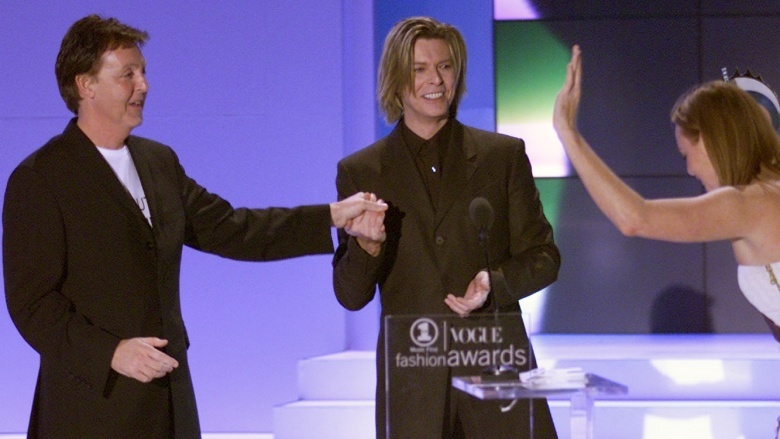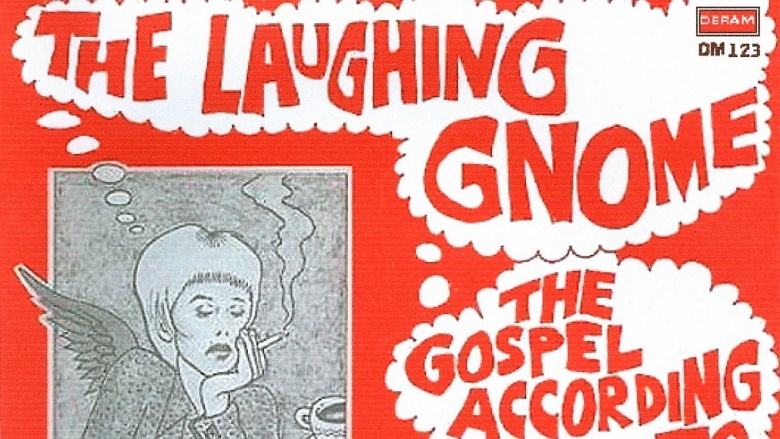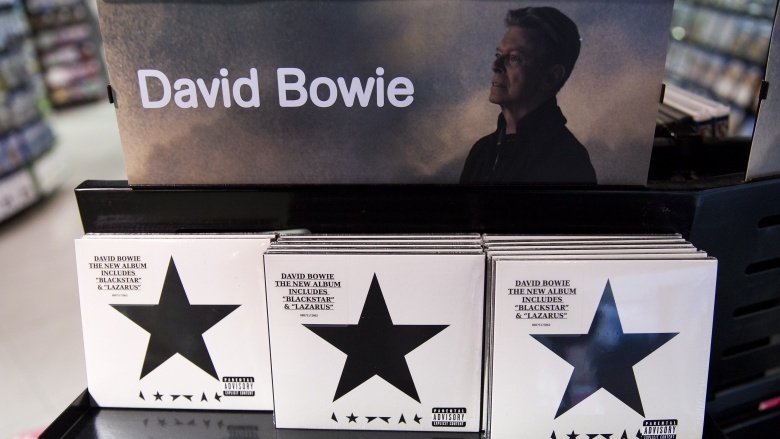David Bowie's Most Iconic Moments
Everybody dies, we get that. But David Bowie passing away at age 69, succumbing to liver cancer that most people didn't even know he had, was a major shock all the same. As the world mourns, let's focus on some of the great things he gave us, both musically and otherwise. Because to name everything the man has given us would make this list 500,000 words long, here are but a few of our favorite Bowie things.
Touring With Nine Inch Nails
In the mid-90s, Trent Reznor (a long-time Bowie nut) invited David to tour with his then-red hot Nine Inch Nails. And despite Bowie being less hot at the time, Reznor loved and respected him enough to make him a major part of the show. He performed both solo and with NIN—likewise, Reznor would perform with NIN and then join Bowie's band. The young, Reznor-obsessed crowds didn't much care for Bowie, especially since he played almost entirely new material. But he still went out there, performed the way he wanted, and solidified himself as an all-time fearless, uncompromising artist who waved his freak flag high no matter how many people did or didn't salute it. Plus, hanging with Reznor gave us "I'm Afraid Of Americans" and who can complain about that? Except Americans, maybe.
The Goblin King
Along with music, Bowie could also act, with probably his most iconic role being the Goblin King from Labyrinth. Though the film flopped at the time, it has since become a cult classic, and you can largely thank Bowie for that. Despite technically being the villain, his creepy-yet-seductive performance quickly became the best, most memorable part of the film, proving that if anyone could make child abduction a lovable quirk, it was David Bowie. That barely-safe-for-work codpiece of his certainly didn't hurt either; for many an '80s kid, glaring at that thing was their first big step toward adulthood.
The Concert For New York City
The post-9/11 Concert For New York City was memorable in many ways, but perhaps the most memorable moment happened at the very beginning. Bowie, who we remind you wasn't an American and just got done singing about how he was afraid of them, kicked the show off with a cover of Simon and Garfunkel's "America." And it was shockingly minimalist, with Bowie sitting criss-cross applesauce under a single spotlight, tapping on a keyboard smaller than Schroeder's, quietly singing to a sea of loud, passionate, and angry New Yorkers. And yet, because he's David Bowie, they stopped and listened, ultimately roaring their approval. He then followed that up with a shout-out to his "local ladder," and a rousing rendition of his song "Heroes," the only real choice for a day like that one.
"Peace On Earth / Little Drummer Boy" (With Bing Crosby)
Most Christmas songs, after a listen or 200, can grate on even the most holly-jolly ears. But not so with Bowie's medley of "Little Drummer Boy" and "Peace On Earth" (a Bowie original). On paper, it sounds like the lamest idea ever: late '70s Bowie and Bing Crosby (by then in his late-70s) crooning a tired old Christmas tune that even Bowie admitted he hated. But they made it work on a level few others could, and not just for pure novelty and surrealism. Their playful banter, coupled with incredible harmonization—despite being generations apart, barely knowing one another, and literally singing one song over the other—immediately created a classic that's enjoyable long after we've taken down the tree and lights. Santa comes and goes, but peace is always worth singing about.
The Origin Of Those Eyes
David Bowie was a physically mesmerizing figure, and those eyes of his were a huge reason why. One blue and one grey, it at first seemed a mere gimmick, something Bowie somehow created to stand out amongst the boring, single-hued oculars of the world. But it was actually the result of his getting punched square in the face as a youth. Basically, he fell for a girl, but a friend of his had already snagged a date with her. In response, Bowie told him the girl was planning to stand him up, so the other man never showed. Once he found out that Bowie had concocted that story so he could, well, "console" the lonely girl, he confronted Bowie with a fist full of righteous fury. This punch paralyzed Bowie's left pupil, leaving it grey and mostly lifeless. This may be the most "Bowie" moment of all: even when clearly in the wrong, and getting the heck beaten out of him for it, he still came out looking awesome and memorable.
Saying "No" To Knighthood
With recipients ranging from Elton John and Paul McCartney, all the way to angry chef Chef Gordon Ramsay, you'd think nobody would refuse an honor like being knighted by the Queen, but that's precisely what David Bowie did in 2003. He didn't have any soapbox-esque reason for telling the Crown to take their sword and shove it, but rather an exceptionally Bowie-esque one. "I would never have any intention of accepting anything like that," he explained. "I seriously don't know what it's for. It's not what I spent my life working for." And that was that—despite Sir David Bowie sounding perfectly natural, it never came to pass except in our hearts. All because Bowie decided he had better things to do. And since he was still busy making music, he was right.
"The Laughing Gnome"
Not everything memorable about David Bowie was overly artistic or beautiful. Sometimes, the man was just plain silly, like with 1967's "The Laughing Gnome." The novelty tune features Bowie duetting with an obnoxious gnome, who speaks like Alvin and the Chipmunks, and whose speech revolves almost entirely around gnome puns. We're not kidding: where does the gnome live? "Gnome-man's Land." He went to the London School of "eco-gnome-ics." The gnome's singing, rhythmic brother? He's a "metro-gnome." You get the point. It's ridiculous, it's dumb, and yet coming from Bowie, the whole thing totally works. Plus, getting all that goofiness out of his system helped him produce "Space Oddity" two years later, so there's that.
Turning His Final Album Into An Artistic Farewell
On January 8,2016, Bowie released his final album, Blackstar. At the time, nobody felt anything about it, aside from happiness that David Bowie had blessed us with even more incredible music. But now that he's gone, it's become clear that Blackstar was his musical goodbye to us all. He knew his time was up, so he let us know in the only way he cared how: through song. The lyrics to "Lazarus" ("Look up here, I'm in Heaven / I've got scars that can't be seen") and "Blackstar" ("Something happened on the day he died / Spirit rose a meter and stepped aside"), coupled with the "Lazarus" music video—where a dying, blindfolded Bowie writhes in bed while a black-clad Bowie writes alongside a human skull—were his way of informing us he was dying, without outright telling us so. Because just saying "I'm dying" would be boring. And that was, perhaps, Bowie's greatest and most enduring gift to the world: a life that, even if you didn't always like what he said and created, was never, ever boring.

